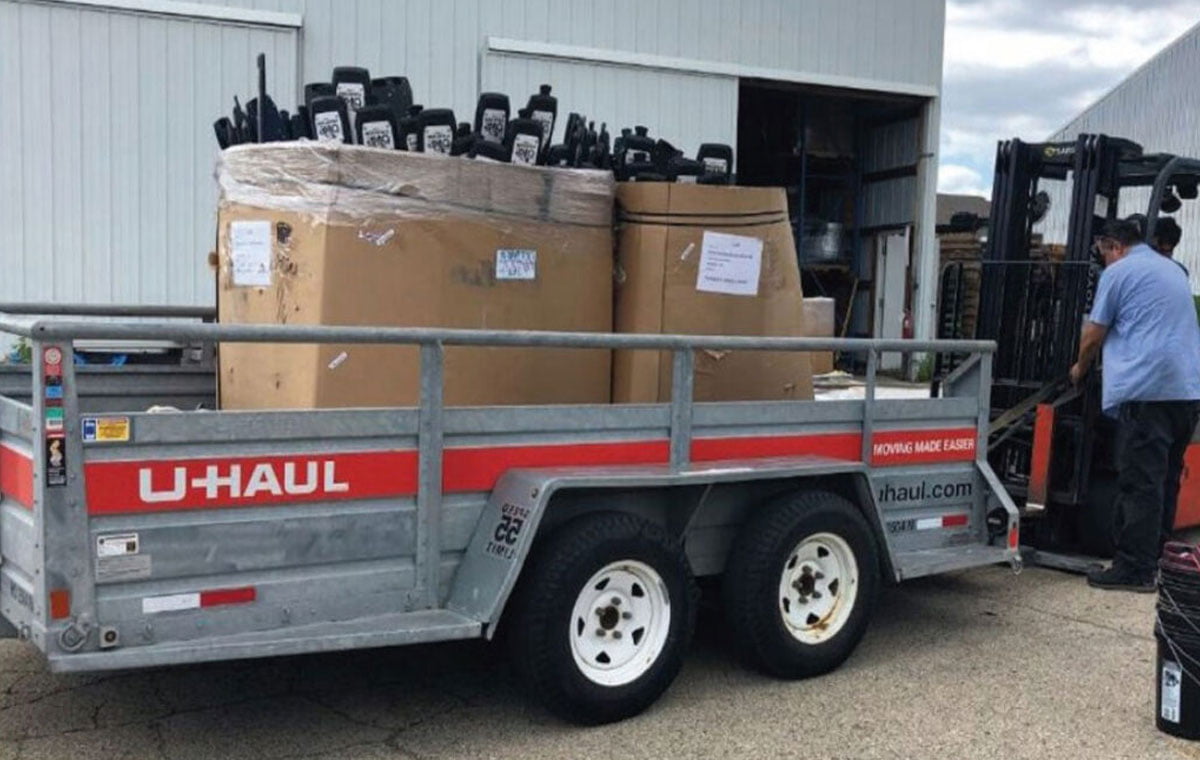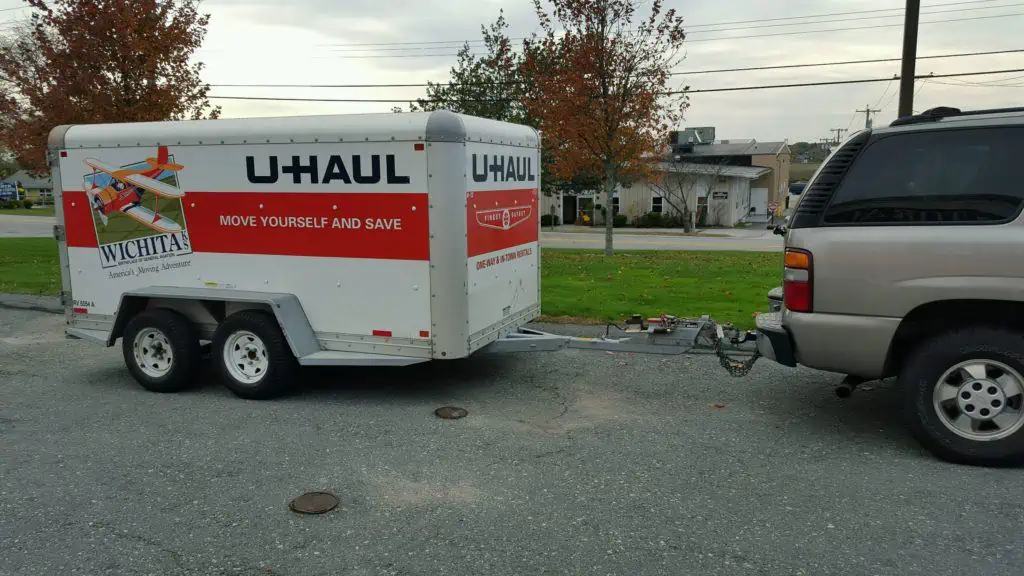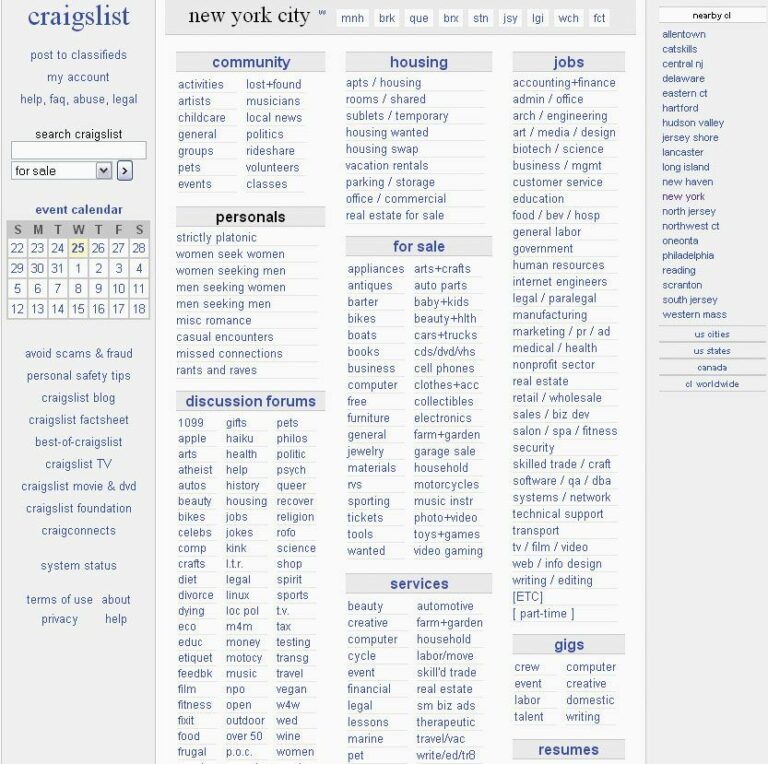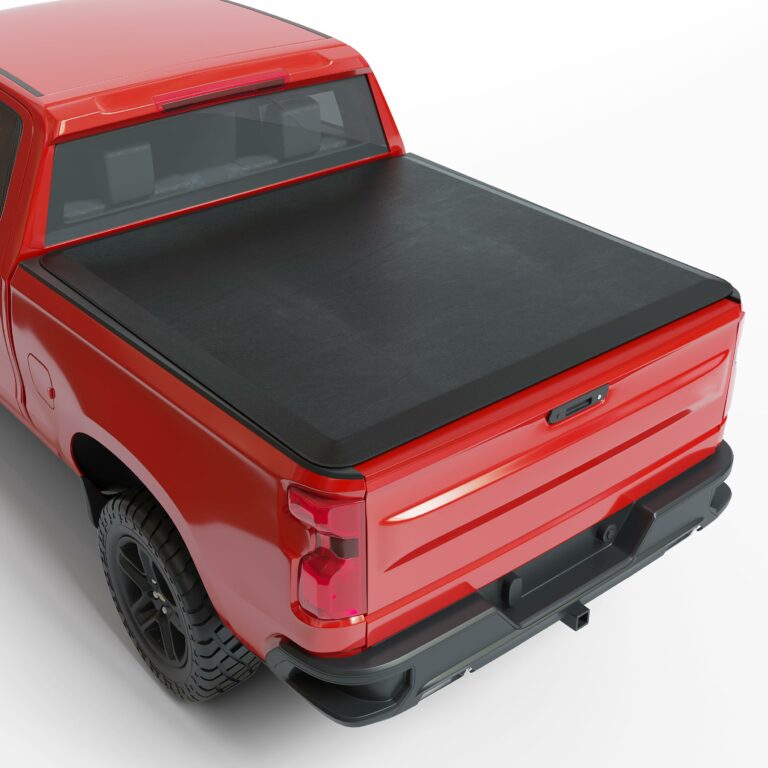How Much Are U-Haul Auto Transport Trailers To Rent?
How Much Are U-Haul Auto Transport Trailers To Rent? cars.truckstrend.com
Moving a vehicle, whether it’s across town or across the country, can be a significant undertaking. While driving it yourself is often the first thought, sometimes that’s not feasible or desirable. Perhaps you’re relocating multiple vehicles, the car isn’t running, or you simply want to protect its mileage during a long-distance move. This is where U-Haul auto transport trailers come into play, offering a practical and often cost-effective solution. But before you hitch up and hit the road, a crucial question looms: "How much are U-Haul auto transport trailers to rent?"
Understanding the cost of U-Haul auto transport trailers involves more than just a single price tag. It’s a dynamic calculation influenced by various factors, from the type of trailer you choose to the distance you’re traveling and the time of year. This comprehensive guide will delve into these elements, providing you with the knowledge to accurately estimate your rental costs and make an informed decision for your vehicle transportation needs.
How Much Are U-Haul Auto Transport Trailers To Rent?
Understanding U-Haul Auto Transport Trailers
U-Haul offers two primary types of vehicle transportation trailers: the Auto Transport Trailer and the Tow Dolly. While both serve the purpose of moving a vehicle, they differ significantly in design, capability, and, consequently, cost.
- U-Haul Auto Transport Trailer: This is a full-deck trailer designed to carry the entire vehicle, with all four wheels off the ground. It’s ideal for long-distance moves, vehicles with low ground clearance, all-wheel-drive (AWD) vehicles, or non-running cars. They typically feature a low loading ramp and an easy-to-use strap system to secure the vehicle.
- U-Haul Tow Dolly: A tow dolly lifts only the front two wheels of the towed vehicle off the ground, while the rear wheels remain on the pavement. These are generally lighter, more compact, and less expensive to rent. They are best suited for front-wheel-drive (FWD) vehicles, shorter distances, or when budget is a primary concern. They cannot be used for AWD vehicles or non-running cars unless special precautions are taken (like disconnecting the driveshaft for RWD).
Choosing between these two depends entirely on your specific vehicle, the distance of your move, and your budget.
Factors Influencing U-Haul Auto Transport Trailer Rental Costs

The price you’ll pay for a U-Haul auto transport trailer is not fixed. Several key factors contribute to the final rental cost:
-
Rental Type: One-Way vs. In-Town:
- One-Way Rental: This is for moves where you pick up the trailer in one location and drop it off in a different city or state. These rentals typically include a set number of days and mileage and are generally more expensive due to the logistics of repositioning the equipment.
- In-Town Rental: For local moves, you pick up and return the trailer to the same U-Haul location. These are usually priced per day or per hour, making them significantly cheaper for short-distance hauling.

Trailer Type: As discussed, the U-Haul Auto Transport Trailer (four wheels up) is almost always more expensive than the Tow Dolly (two wheels up). This is due to its larger size, heavier construction, and greater versatility.
-
Distance and Duration (One-Way): For one-way rentals, the further you’re traveling, the higher the cost. The rental period is also typically set based on the distance, with longer distances allotted more days. Exceeding the allotted days can incur additional daily charges.
-
Availability and Demand: Like airline tickets or hotel rooms, U-Haul rental prices can fluctuate based on demand. Peak moving seasons (summer months, end of the month, holidays) often see higher prices due to limited availability. Booking well in advance during these times can sometimes help secure a better rate.
-
Pickup and Drop-off Locations: Prices can vary slightly depending on the specific U-Haul center or dealer you choose, and the general demand in those particular areas. Picking up in a high-demand city and dropping off in a low-demand area, or vice-versa, can influence pricing.
-
Optional Add-ons:
- Insurance: U-Haul offers various coverage options like "Safemove" and "Safemove Plus" which protect against damage to the rental equipment and sometimes the towed vehicle. While optional, it’s highly recommended for peace of mind.
- Moving Supplies: Though not directly part of the trailer rental, if you’re also renting a truck, you might add moving boxes, dollies, or blankets, which contribute to your overall moving budget.
Auto Transport Trailer vs. Tow Dolly: Which is Right for You?
Making the right choice between an auto transport trailer and a tow dolly is crucial for both cost-effectiveness and safety.
| Feature | U-Haul Auto Transport Trailer | U-Haul Tow Dolly |
|---|---|---|
| Vehicle Position | All four wheels off the ground | Front two wheels off the ground, rear two on pavement |
| Vehicle Type | All vehicles (FWD, RWD, AWD), non-running cars | Primarily FWD vehicles; RWD/AWD with drive shaft disconnect |
| Loading | Ramps for drive-on; winching possible for non-runners | Drive-on ramps, easy to load FWD vehicles |
| Cost | Higher rental cost | Lower rental cost |
| Weight | Heavier trailer (approx. 2,210 lbs empty) | Lighter trailer (approx. 750 lbs empty) |
| Maneuverability | Less agile, requires more space for turns | More agile, easier to maneuver |
| Mileage on Towed Car | No mileage accumulated | Mileage accumulated on rear wheels |
| Ideal Use | Long-distance moves, protecting vehicle, non-runners, AWD | Shorter distances, FWD vehicles, budget-conscious |
If you have an all-wheel-drive vehicle, a classic car you want to protect from road wear, or a car that isn’t operational, the auto transport trailer is your only safe and viable option. For a simple, shorter move with a front-wheel-drive car, a tow dolly can save you a significant amount.
How to Get a Quote and Reserve Your Trailer
Getting an accurate quote from U-Haul is straightforward and can be done online or by phone.
- Visit the U-Haul Website: Go to UHaul.com and navigate to the "Trailers" section.
- Enter Your Details: You’ll need to provide:
- Pickup Location: City, state, or ZIP code.
- Drop-off Location (if one-way): City, state, or ZIP code.
- Dates: Your desired pickup and return dates.
- Towing Vehicle Information: Make, model, and year of the vehicle that will be towing the trailer. This is crucial for U-Haul to verify compatibility and safe towing capacity.
- Towed Vehicle Information: Make, model, and year of the vehicle you intend to transport. This helps U-Haul recommend the correct trailer type and verify its fit.
- Select Trailer Type: Based on your towed vehicle, U-Haul will suggest either an auto transport or a tow dolly. You can then select your preferred option.
- Review Quote: The system will generate a quote, often showing various price points for different durations or pickup locations. This quote will typically include the base rental fee and any estimated taxes.
- Add Optional Coverage: Before finalizing, you’ll be prompted to add optional insurance coverage.
- Reserve: Once satisfied, you can proceed to reserve your trailer. A credit card is usually required to hold the reservation, though payment is often made upon pickup.
Practical Advice: Always provide accurate information about both your towing and towed vehicles. U-Haul’s system uses this data to ensure safe towing combinations. Providing incorrect information could lead to issues at pickup or, worse, safety hazards on the road.
Important Considerations Before Renting
Before you commit to renting an auto transport trailer, ensure you’ve considered these vital aspects:
- Towing Vehicle Capacity: This is paramount for safety. Your towing vehicle must have a sufficient Gross Combined Weight Rating (GCWR) to handle the weight of the trailer (empty weight + towed vehicle weight) plus its own weight and cargo. U-Haul’s system will typically verify this, but it’s your responsibility to double-check your vehicle’s owner’s manual.
- Hitch Requirements: You’ll need a properly installed hitch receiver, a hitch ball (usually 2" for U-Haul auto transport trailers, 1-7/8" or 2" for tow dollies), and a working wiring harness for trailer lights (4-flat connector is standard).
- Loading and Unloading: Be prepared for the process. U-Haul provides instructions, but it can be intimidating the first time. Ensure you have clear, level ground for loading and unloading, and follow all safety instructions, especially regarding securing the vehicle with straps.
- Insurance: While optional, insurance can save you from significant financial headaches. U-Haul’s Safemove/Safemove Plus covers damages to the trailer and often the towed vehicle itself. Check your personal auto insurance policy; some policies offer limited coverage for rented trailers, but it’s rarely as comprehensive.
- License Plates and Registration: Ensure the towed vehicle has valid registration and a license plate. While the trailer itself is registered to U-Haul, your vehicle still needs to be street legal, even when being towed.
- Cancellation Policy: Familiarize yourself with U-Haul’s cancellation policy. There’s usually no fee if you cancel more than 24 hours in advance, but last-minute cancellations might incur a charge.
Tips for Saving Money on Your U-Haul Auto Transport Trailer Rental
While the cost varies, you can employ strategies to potentially lower your rental expenses:
- Book in Advance: Especially during peak moving seasons, booking early can lock in a better rate and ensure availability.
- Be Flexible with Dates and Locations: If your schedule allows, try to rent during off-peak days (mid-week) or times. Sometimes, adjusting your pickup or drop-off location by a few miles can result in a different price due to varying local demand.
- Choose a Tow Dolly if Feasible: If your vehicle and distance allow, opting for a tow dolly instead of an auto transport trailer is the most significant way to save money.
- Consider In-Town Rental for Short Distances: If you only need to move a vehicle a short distance (e.g., within the same city or neighboring towns), an in-town rental is far more economical than a one-way.
- Avoid Unnecessary Add-ons: While insurance is recommended, be mindful of other optional items you might not truly need.
- Return on Time: Late returns can incur additional daily charges, quickly eating into your budget.
Estimated U-Haul Auto Transport Trailer Rental Costs
It’s crucial to understand that U-Haul prices are dynamic and vary based on the factors listed above. The table below provides estimated ranges to give you a general idea, but you must get a direct quote for your specific needs.
| Rental Type & Trailer | Estimated Cost Range (Base Rental) | Key Influencing Factors |
|---|---|---|
| In-Town Rental | ||
| U-Haul Tow Dolly | $50 – $70 per day | Local demand, specific U-Haul location, rental duration (some hourly rates available). |
| U-Haul Auto Transport | $60 – $90 per day | Local demand, specific U-Haul location, rental duration. |
| One-Way Rental | ||
| U-Haul Tow Dolly | $150 – $500+ (for short to medium distances) | Distance (primary factor), pickup/drop-off locations, time of year (demand), availability. |
| U-Haul Auto Transport | $700 – $1,500+ (for cross-country/long distances); $200 – $700+ (for regional/medium distances) | Distance (primary factor, can easily exceed $1000 for coast-to-coast), pickup/drop-off locations, time of year (demand), availability. |
| Additional Costs | ||
| Optional Insurance | $8 – $25 per day (depending on coverage level and trailer type) | Chosen coverage level (Safemove, Safemove Plus), trailer type. |
| Environmental Fee | $1 – $5 (one-time fee) | Standard U-Haul fee for equipment maintenance and environmental initiatives. |
| Taxes | Varies by state/locality | Local sales tax rates. |
| Late Return Fees | Daily rental rate + penalty | Policy for exceeding agreed-upon return time. |
Note: These are estimates. Always obtain a direct quote from U-Haul for the most accurate pricing based on your specific requirements.
Frequently Asked Questions (FAQ)
Q1: Can I rent an auto transport trailer without also renting a U-Haul truck?
A1: Yes, absolutely. If your personal vehicle meets U-Haul’s towing requirements (sufficient towing capacity, proper hitch, and wiring), you can rent just the auto transport trailer or tow dolly.
Q2: What’s the main difference between an auto transport trailer and a tow dolly?
A2: An auto transport trailer carries the entire vehicle with all four wheels off the ground, suitable for all vehicle types and long distances. A tow dolly lifts only the front two wheels, leaving the rear wheels on the pavement, primarily for front-wheel-drive vehicles and shorter distances.
Q3: Do I need insurance for the trailer?
A3: Insurance is optional but highly recommended. Your personal auto insurance might offer limited coverage, but U-Haul’s "Safemove" or "Safemove Plus" specifically covers damage to the rental equipment and often the towed vehicle, providing much greater peace of mind.
Q4: What kind of hitch do I need to tow a U-Haul trailer?
A4: You’ll need a properly installed hitch receiver on your towing vehicle. U-Haul auto transport trailers typically require a 2" hitch ball. Tow dollies can use a 1-7/8" or 2" ball. A working 4-flat wire harness for trailer lights is also essential.
Q5: Can I tow a non-running car with a U-Haul trailer?
A5: Yes, you can tow a non-running car with a U-Haul Auto Transport Trailer. It’s designed to carry the entire vehicle. You cannot tow a non-running car with a tow dolly, as it requires the towed vehicle’s steering to be unlocked and functional.
Q6: Are there mileage limits on U-Haul auto transport trailer rentals?
A6: For one-way rentals, the mileage is typically included in the quoted price, based on the distance between your pickup and drop-off locations. There isn’t usually a separate mileage charge unless you significantly deviate from the planned route. In-town rentals are not mileage-based, but rather time-based.
Q7: What if I need to change my reservation or cancel it?
A7: You can typically modify or cancel your reservation online or by calling U-Haul directly. There’s generally no cancellation fee if you cancel at least 24 hours before your scheduled pickup time.
Conclusion
Renting a U-Haul auto transport trailer offers a convenient and flexible solution for moving vehicles, whether across the street or across the country. While the question "How much are U-Haul auto transport trailers to rent?" doesn’t have a single, fixed answer, understanding the various factors that influence pricing empowers you to anticipate costs and make informed decisions.
By considering the type of trailer, the distance, your desired dates, and potential optional add-ons, you can effectively budget for your vehicle transportation needs. Always get a direct quote from U-Haul for the most accurate pricing, and prioritize safety by ensuring your towing vehicle meets all requirements. With proper planning, renting a U-Haul auto transport trailer can be a straightforward and valuable part of your moving process, saving you time, mileage, and potential headaches.





